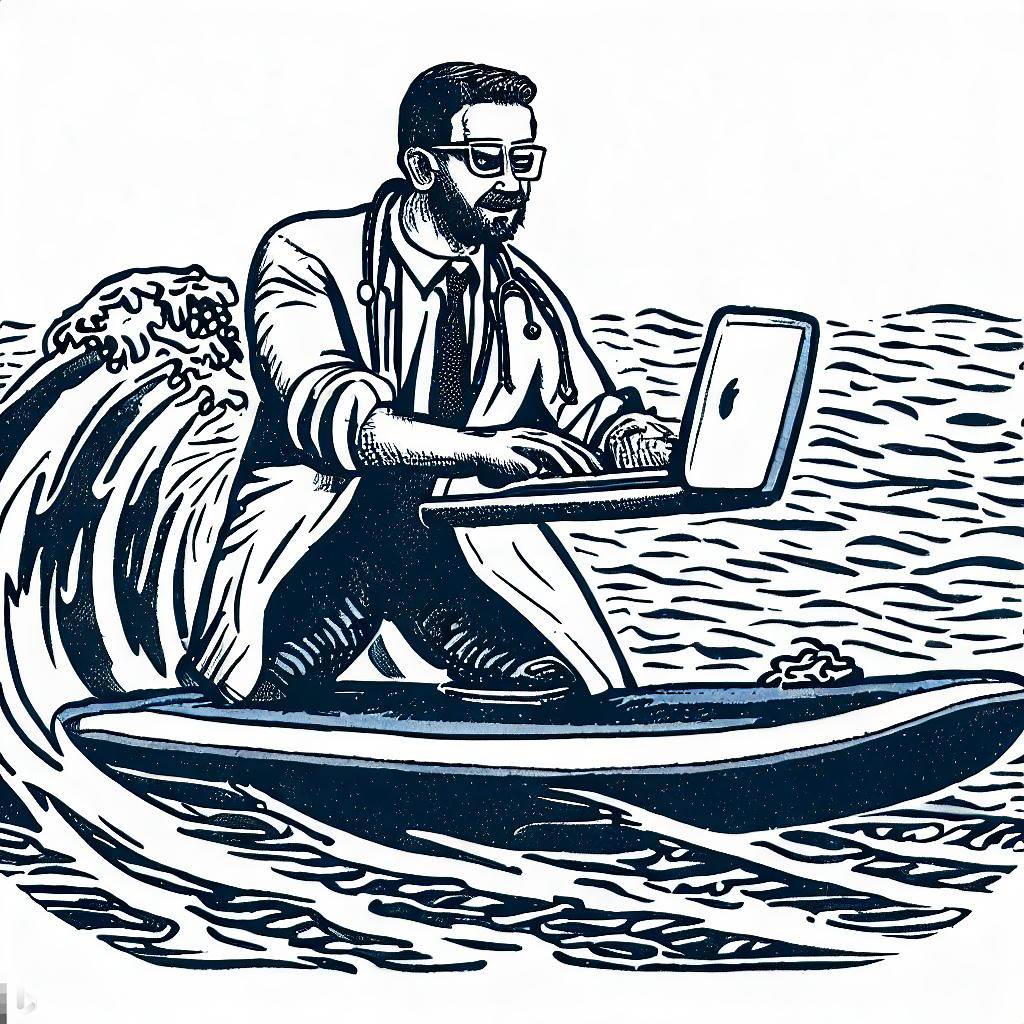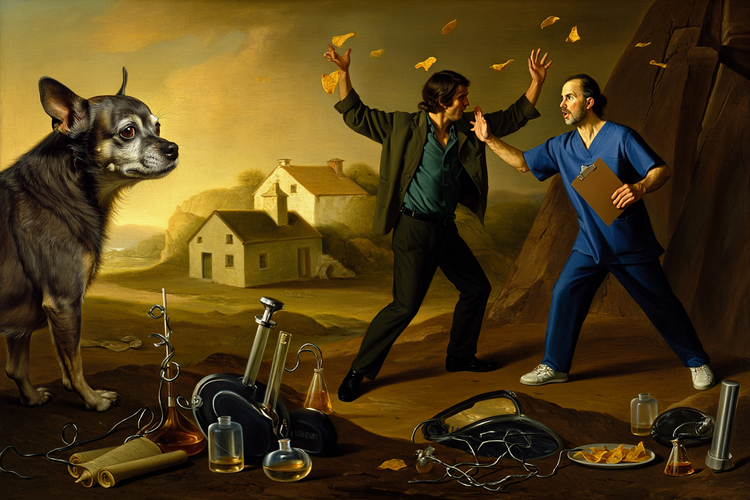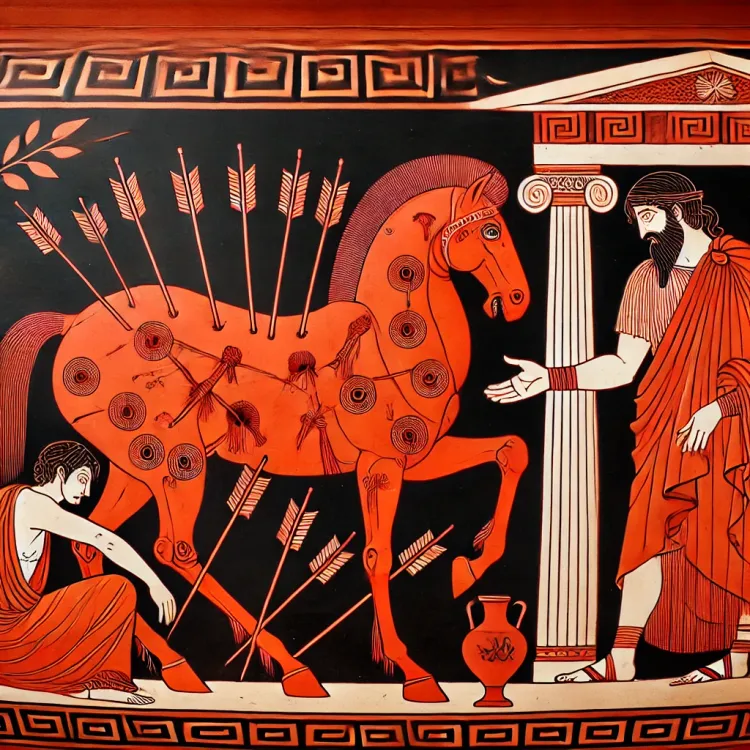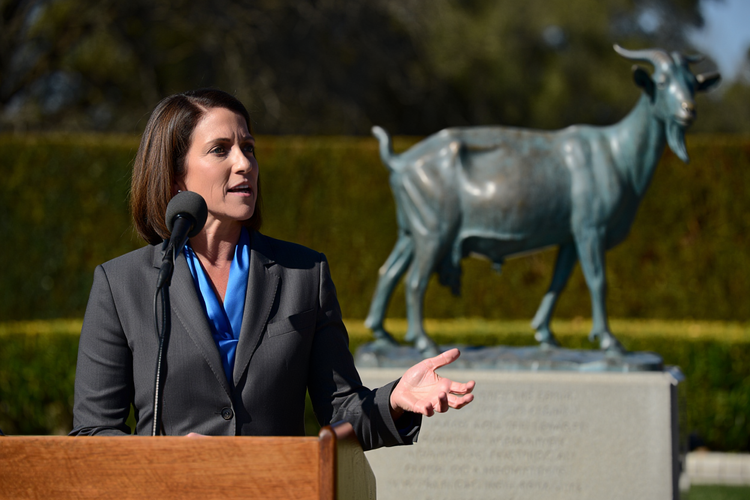Why am I qualified to talk about telemedicine?

Sometimes I can't help but think in terms of surfing analogies. Because I grew up near the beach as a kid, I've spent a lot of time in the ocean, and it definitely shaped my thinking in all sorts of important ways. One of the things that can occasionally happen to you as you sit on a piece of foam in an endless expanse of water is that imperceptible currents move you in one direction or another. You turn back to look at the cliffs, and you're suddenly quite a ways from where you started. This isn't always bad, since your position near waves might actually be getting better. And depending on the current's strength, it might be a wise move just to go along with it rather than fight against the flow.
This is exactly how I accidentally got involved in telemedicine. Poetically enough, it was a small animal veterinary clinic just a few blocks from the beach, in my first real job out of vet school. Around 2016, the entrepreneurially-minded owner brought in video-based telemedicine to our practice. Don't worry about the technical details, it was basically a FaceTime call with a built in fee-capture, and no one had any idea how to use it. I absolutely hated it.* I did not want to use it, but would reluctantly agree to do post-operative incision checks if the owner's didn't want to bring their animals in. I stressed about missing a dehiscence or a seroma, but was generally able to make a reasonably good assessment.
Little by little, I realized that this was actually saving me and my clients a lot of time. We used to book 30 minute, in-clinic appointments for post-op rechecks, with no charges to the clients. The appointments usually took about 2-3 minutes, almost never required follow up, and would pull away tech and front staff attention. One evening, at our DVM journal club (and a couple of pints), we devised an idea: why not do a clinical trial of telemedicine vs. in-clinic appointments for post-op rechecks?
It was a very simple idea, so much so that I actually agreed to run the whole thing. This is how I calibrated my "Science Projects are 10-100x Times Harder Than You Think They're Going to be" rule. Eventually though, we did publish an article in JAVMA showing that video-telemedicine worked pretty well. Clients were happy, they perceived their animals as being happier, and we saved everyone a little bit of time. I could not have done any of this without the help of my co-authors, especially Dr. Lori Kogan at Colorado State.
This was 2018, and the next year I flew to D.C. to present a couple of lectures at the AVMA Convention on telemedicine. To be honest, I was surprised that anyone showed up. One benefit of my inferiority complex was to overcompensate with background research though, and I think the organizers were a bit surprised to see a reference list with over 50 citations. Because I had read so much, I was developing a bit of an expertise in telemedicine, although it really was, and still is, very nascent in the veterinary field. This was probably the first time I looked up and noticed how far I had drifted along.
Pre-COVID, of course, veterinary telemedicine was a "Hot Topic", but boy did it warm up when stay-at-home orders were issued. At the time, I was actually trying to set up a small telemedicine study at a clinic where I did relief work. It fizzled out, but then my wife and I had our second child right as things were shutting down in Oregon from the pandemic.
A request from our local veterinary association came in to discuss how to bring telemedicine on board in a hurry, and I did my best to talk about what I had learned. This in turn led to a curiosity about how people were actually utilizing telemedicine, and a subsequent VIN (Veterinary Information Network) survey that also appeared in JAVMA describing veterinarian's use of it during the pandemic. I gave a lecture during the virtual AVMA Convention the next year.
That was several years ago, and since then I've been selected as a reviewer for several veterinary telemedicine papers. I've got a Google Scholar alert for articles relating to the topic, so I pretty much can't help but be swept along by it. I occasionally get into discussions (disagreements? arguments?) on VIN about telemedicine, and my own thinking has evolved to the point where I do actually take sides on the subject of establishing a VCPR (veterinarian-client-patient relationship) remotely, however, that's probably for another time.
All of this has been curious since I have no financial incentives to do any of it. I have no involvement with any telemedicine companies, and I've spent a lot of time doing this for free. Probably there was some sense of wanting to contribute to the scientific literature, wanting to be a "real scientist", and I do think I've scratched that itch to a degree. But it's definitely not the most interesting topic to me, and I've tried to "break up" with veterinary telemedicine a couple of times only to find that the current is still dragging me along (I just gave another talk to our local VMA). I think maybe I'm benefitting my profession (I hope!) by providing an independent, evidence-based perspective on this truly controversial topic.
Maybe I should have focused all of that attention and effort on a topic that was more interesting, or more important. Maybe this shows what a directionless, drifty surfer type I really am. All I can say is, sometimes you just gotta go with the flow, brah!
*One time I had a fit about a technical malfunction during a call and called the company CEO's personal cell to express my frustration at his stupid, malfunctioning app. He checked the code and signal in real time but couldn't diagnose the problem. Right after my rant I noticed that I had the webcam shutter closed off. Oops!





Comments ()